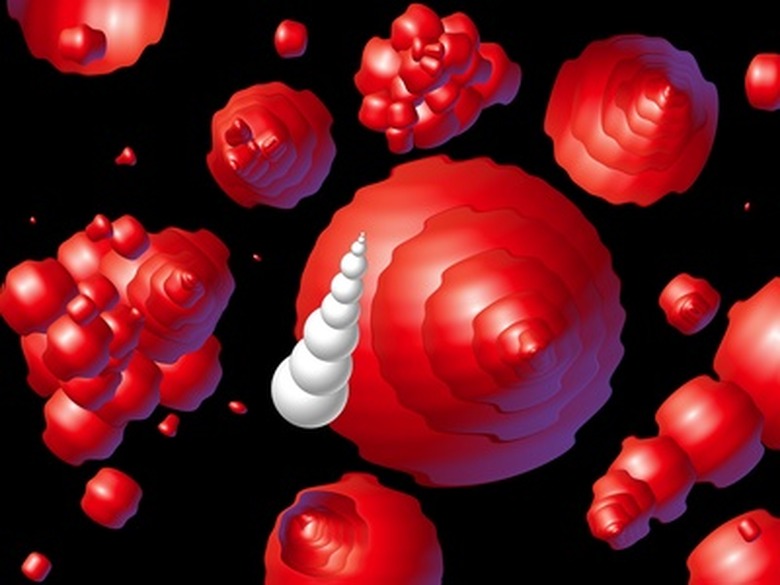How To Make A 3D Plant Cell
Making a three-dimensional plant cell can be both fun and educational. Plant cells can be made from a Styrofoam ball and miscellaneous bits of craft items; but if you want some real fun, allow students to create a plant cell made out of edible materials that can be eaten after it's graded. Students are more likely to retain the lessons learned if they have fun while learning.
Step 1
Choose a light color Jello so that you can see the representations of the different parts of the cell including cell membrane, cell wall, vacuole, nucleus, nucleolus, nuclear membrane, chloroplast, mitochondrion, cytoplasm, amylosplast, centrosome, rough and smooth endoplasmic reticulum, ribosomes and Golgi body.
Step 2
Prepare the Jello by boiling about three-quarters of the amount of hot water stated on the cooking instruction on the box. Stir in the gelatin until it is dissolved and then add the same amount of cold water. Using less water helps the Jello turn out a little thicker, which will in turn help your cell components stay in place. The Jello will represent the largest part of the cell–the cytoplasm–that contains the other parts. Pour the Jello into a one gallon Ziploc bag and set the bag inside a larger bowl for sturdiness. The plastic bag will be your cell membrane. Let it cool for one hour in the refrigerator or until it is almost solid or set.
Step 3
Add small fruits such as cherries, raspberries, one seeded grape, diced peaches or pineapple chunks and small candies such as jelly beans, M&M's, gum balls, gummy worms or bears and sprinkles to represent the various components of the internal structure of the cell. The seeded grape should be cut in half with the seed intact to represent the nucleus: It's skin would be the nuclear membrane, and the seed would show the nucleolus. Cutting the grape in half allows you to see the seed.
Step 4
Create a diagram mimicking the placement of the different fruits and candies and identify and label each type as to which parts of the cell they represent.
Things Needed
- Jello
- water
- spoon
- stove
- Ziploc bag
- small fruit
- small candies
- paper
TL;DR (Too Long; Didn't Read)
If the student has created this project at home and needs to take it to school, be sure and provide her with a cooler and ice to keep the Jello solid during transport.
Warning
An adult should always be present when younger students are boiling water for a project or working around a hot stove.
Cite This Article
MLA
Ingram-Christian, Brenda. "How To Make A 3D Plant Cell" sciencing.com, https://www.sciencing.com/make-3d-plant-cell-6552998/. 24 April 2017.
APA
Ingram-Christian, Brenda. (2017, April 24). How To Make A 3D Plant Cell. sciencing.com. Retrieved from https://www.sciencing.com/make-3d-plant-cell-6552998/
Chicago
Ingram-Christian, Brenda. How To Make A 3D Plant Cell last modified March 24, 2022. https://www.sciencing.com/make-3d-plant-cell-6552998/
